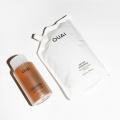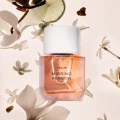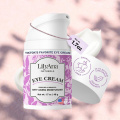Unlock Fenugreek Benefits: The Superfood You Need in Your Diet
Discover the incredible fenugreek benefits; an ancient spice that can manage diabetes, improve digestion, help in weight loss and more. Learn more now!
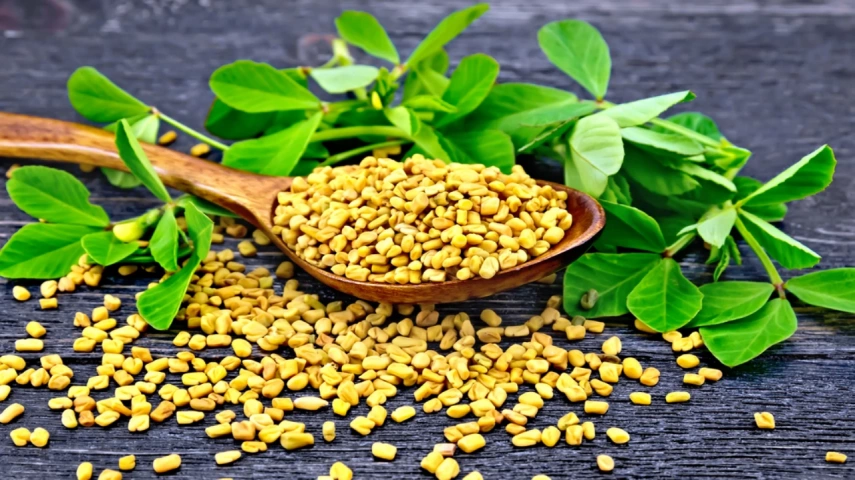
Found in almost all Indian household kitchens, fenugreek, or methi dana, as we call it, is a very versatile and natural herb. It is not only popular in India but used in various countries around the world. Before we reveal to you about the fenugreek benefits, you should know that the leaves and the fenugreek seeds have been used for centuries in traditional cooking. Its seeds are also being used for medicinal purposes because of their various healing properties.
Scientifically known as Trigonella foenum-graecum Linn, the highly nutritious fenugreek is used in various forms, like raw seeds, powdered seeds, and seed extracts. Packed with fiber, protein, iron, manganese, and many more vitamins and minerals, they are used to treat and manage various health conditions.
What is Fenugreek?
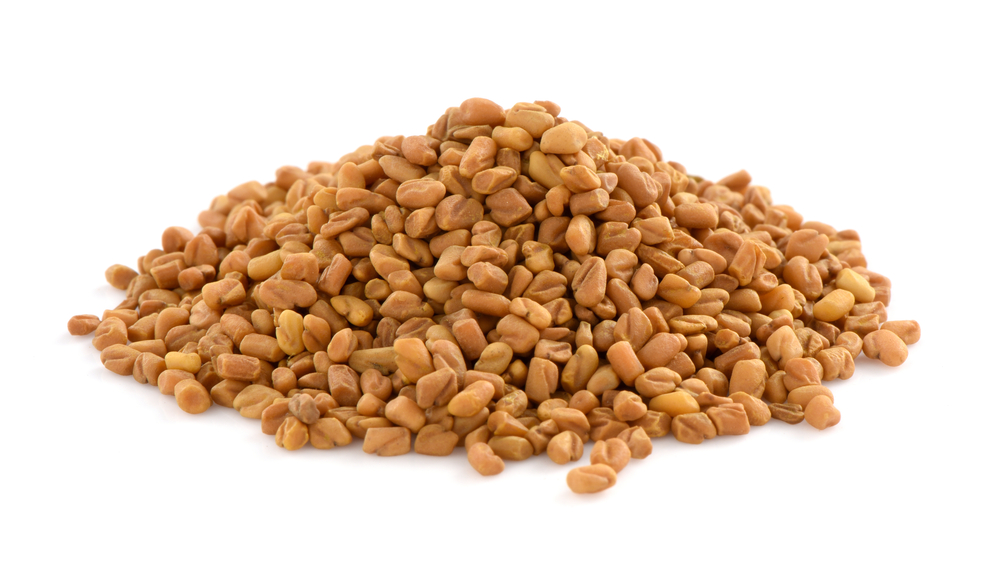
Fenugreek (Trigonella foenum-graecum) is a clover-like herb that belongs to the pea family. The plant is native to the Mediterranean region, western Asia, and the southern part of Europe. It is also widely cultivated in India, where it is popularly called methi dana.
The yellow to amber colored fenugreek seeds have a distinctive, bitter flavor. These are used in many different dishes across different cuisines. Fenugreek leaves are used as an herb and are added to salads and soups for a slightly bitter, earthy taste.
Fenugreek is also widely used for its medicinal properties. It has long been used to treat ailments like digestive issues, diabetes, and menstrual cramps (1). Fenugreek is also sometimes used by nursing mothers to increase milk production (2). Fenugreek are acknowledged and used in the beauty industry. Believed to have skin-nourishing properties, it is also added to skincare and haircare products.
Speaking of its versatility, our contributor Mary Sabat, RDN, LD and Ace Certified Trainer, states, “Fenugreek is commonly used as an active ingredient in various products, including dietary supplements, herbal remedies, and culinary ingredients. Some examples of products with fenugreek as the active ingredient include fenugreek capsules or pills (used for various health purposes), fenugreek tea (used for its potential health benefits), fenugreek seeds (used in cooking and herbal preparations), and fenugreek extract (found in some skincare and hair care products for its potential benefits).”
Nutrition Facts of Fenugreek
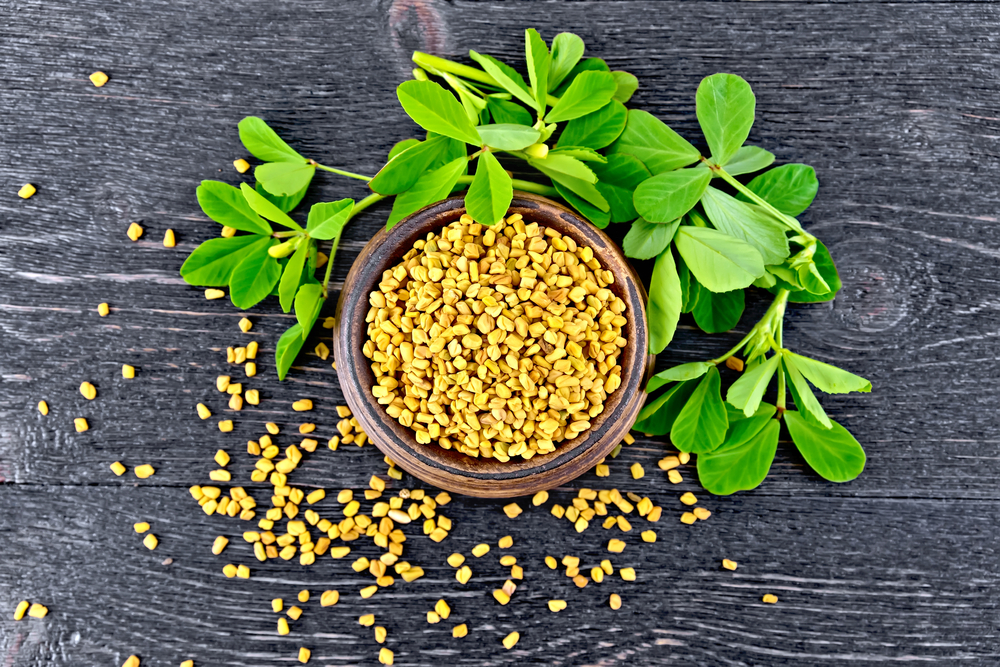
Fenugreek seeds are considered full of nutrition. They contain a good amount of fiber and minerals like iron and manganese, and they are a good source of antioxidants. Here are the nutrition facts for 1 tablespoon (11.1 grams) of dried fenugreek seeds (3):
- Calories: 35.9
- Protein: 2.55 grams
- Carbohydrates: 6.48 grams
- Fiber: 2.73 grams
- Fat: 0.7 gram
- Calcium: 19.5 mg
- Iron: 3.72 mg
- Magnesium: 21.2 mg
- Potassium: 85.5 mg
- Phosphorus: 32.9 mg
- Sodium: 7.44 mg
These seeds also contain small amounts of other nutrients like copper, manganese, vitamin C, vitamin B-6, vitamin A, fatty acids, etc.
Fenugreek Benefits
Fenugreek is a very versatile herb that has been known for its health-promoting properties. It is considered beneficial in treating problems like digestion, hair, menstrual cramps, etc. Fenugreek seeds contain plant-based proteins and are rich in iron and dietary fiber (3). Let us find out some of the benefits of fenugreek:
Can Aid in Weight Loss
Fenugreek is rich in fiber, which promotes an increased feeling of fullness, which in turn leads to less food intake (3). They are also known to suppress appetite, thereby aiding in weight loss.
According to Dr. Nandita Palshetkar, Founder of The Bloom IVF Group, “Fenugreek is a very versatile herb that has been known for its health promoting properties. Fenugreek is reaching fiber which promotes increased feeling of fullness which in turn leads to less food intake, known to suppress appetite there by adding in weight loss. But fenugreek has also advantages supporting healthy weight gain as it is:
1. Used as an appetite stimulant - incorporating fenugreek into your meals or consuming it as a supplement you can support a healthy increase in food intake.
2. Nutrient rich - fenugreek is packed with essential nutrients including proteins, healthy fats, and carbs. These nutrients are vital for healthy weight gain.
3. Known to improve digestion and nutrient absorption - factors which are crucial for weight gain.
4. Known to ensure balanced hormone levels which can impact muscle growth and weight gain.
So fenugreek can be consumed by any individual. Fenugreek can be combined with a nutrient based diet, regular exercises and a healthy lifestyle.”
A study was conducted on overweight Korean women. It showed that the consumption of fenugreek tea before lunch helped reduce their hunger and food intake (4). Reduced food intake might help with weight loss. Another study done on the effect of fenugreek on total body and organ weights (conducted on mice) concluded that a beneficial decrease in total body, as well as adipose tissue weight, was seen, and hence, fenugreek can be accepted as one of the herbal preparations for treating obesity (5).
Promotes Breast Milk Production
Fenugreek is known to be helpful for lactating mothers as it increases breast milk production. Breasts are modified sweat glands, and fenugreek stimulates sweat production. Research conducted on the effectiveness of fenugreek as a galactagogue claims that consumption of fenugreek significantly increased the amount of breast milk produced (2). A study said that fenugreek can increase the milk supply of a nursing mother within 24 to 72 hours after first taking the herb (6).
Dr. Nandita Palshetkar further adds, “Fenugreek is a good stimulator of breast milk. Fenugreek is recognized as safe by the FDA. Most people tolerate it well and it hasn’t been shown to have any negative impact on infants, though some moms report that their babies are a bit gassy when they take it. Some moms have noticed that their babies become fussy after they start taking fenugreek. Sometimes your baby night also smells like maple syrup.”
Keep reading to learn about some more fenugreek benefits for men.
Boosts Testosterone Secretion
The testosterone hormone plays a vital role in overall wellbeing of the body and in nurturing sexual drive. The relationship between serum testosterone levels and libido is well established. Libido and T concentrations are strongly related at the population level (7). A clinical study was conducted to evaluate the effect of Testofen (fenugreek extract) on male libido. The study was done on 60 healthy males between the ages of 25 and 52. It concluded that Testofen demonstrated a significant positive effect on physiological aspects of libido and may assist in maintaining normal, healthy testosterone levels (8).
Helps in Diabetes Treatment
Fenugreek seeds contain soluble fiber and other chemicals that may not only slow digestion but also slow the body's absorption of carbohydrates and sugar. Research conducted on the role of fenugreek in the prevention of type 2 diabetes in both men and women between the ages of 30 and 70 years. It was revealed that the people who consumed fenugreek saw a significant reduction in fasting plasma glucose, postprandial plasma glucose, and low-density lipoprotein cholesterol (9). Another study concluded that the addition of fenugreek seeds, along with diet control and exercise, can have a synergistic effect on fasting blood glucose (10). This is counted among one of the most important health benefits of fenugreek .
Could support a Healthy Scalp
Fenugreek has traditionally been used to treat scalp conditions. Malassezia spp. are commensal yeasts that could be the root cause of various ailments like dandruff and seborrheic dermatitis. A study conducted concluded that the fenugreek extracts were found to be active against a strain of Malassezia. It also said that a topical gel formulation containing fenugreek leaf extract could be an effective herbal treatment for various fungal infections like dandruff (11).
Helps in the reduction of Inflammation
Fenugreek seeds have anti-inflammatory agents (12). A study was conducted on mice to analyze the anti-inflammatory activities of fenugreek. The results showed a reduction in inflammation (13).
Helps in reducing Menstrual Cramps
Among other fenugreek benefits for women, this one is beneficial for females who have to bear menstrual pain every month. Fenugreek seed powder during menstruation can reduce the severity of dysmenorrhea. A study conducted to evaluate the effects of fenugreek seed powder on menstrual pains was conducted on some students. It revealed that the group that was given the powder experienced significantly reduced pain and other symptoms of dysmenorrhea like nausea, vomiting, headache, etc (14).
How should you consume fenugreek?
Fenugreek seeds can be consumed in various forms, depending on the desired health benefits and personal preference. Here are a few common ways to consume fenugreek seeds to receive the benefits of fenugreek:
- Soaked Fenugreek Seeds: Soak fenugreek seeds overnight in water. This not only softens them but also makes them easier to digest. You can consume the soaked seeds directly or add them to salads, smoothies, or other dishes.
- Fenugreek Tea: Boil a teaspoon of fenugreek seeds in a cup of water for a few minutes. Strain the liquid. Add honey or lemon juice to taste. Fenugreek tea can be enjoyed hot or cold.
Fenugreek Capsules or Pills: Fenugreek seed extracts are available in the form of capsules or pills, which can be taken as dietary supplements. It's important to follow the recommended dosage and consult with your doctor before taking any supplements.
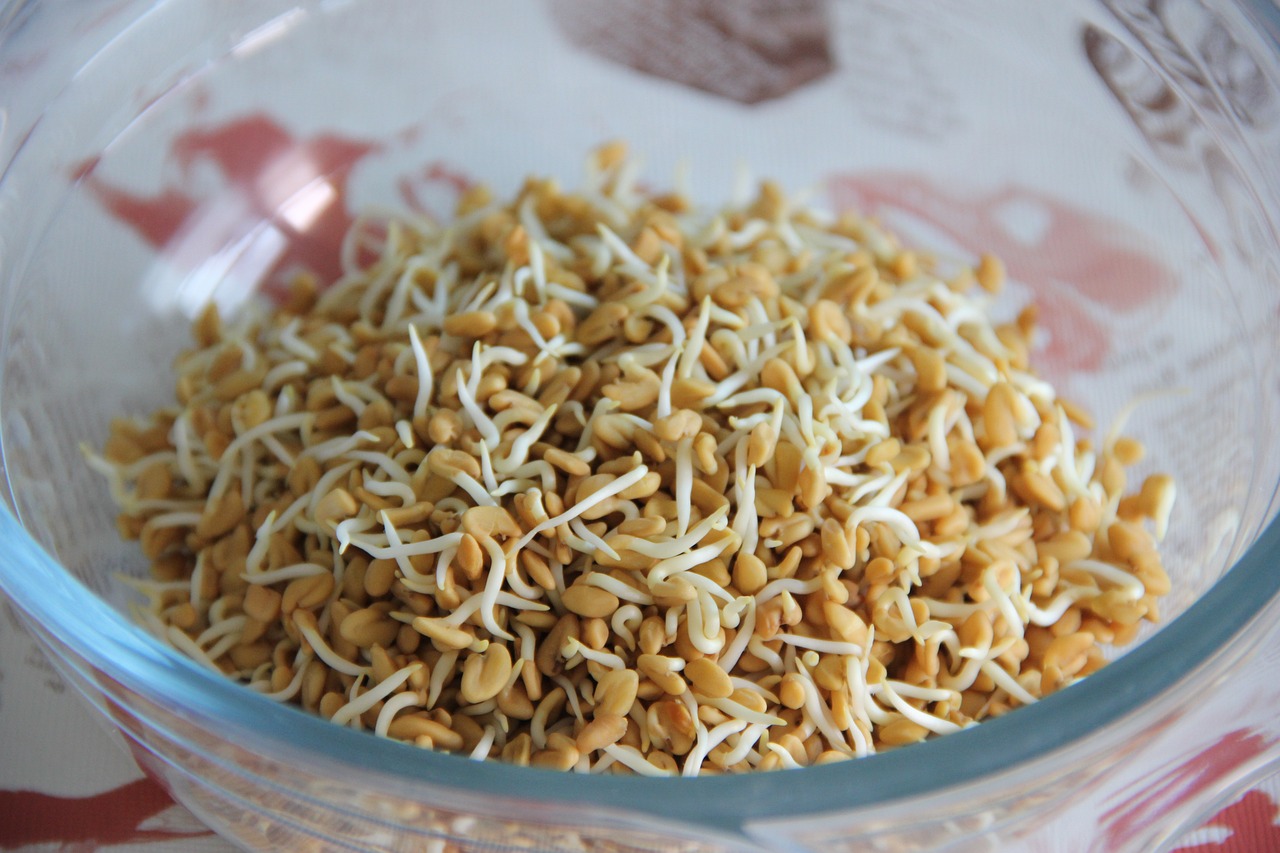
- Sprouted Fenugreek Seeds: Sprouting fenugreek seeds can increase their nutrient content multifold. To sprout fenugreek seeds, soak them overnight, drain the water, and spread the seeds on a damp cloth. Cover them with another damp cloth and leave them in a warm place for a few days until they sprout.
How Much Fenugreek is Safe Per Day?
The appropriate dosage of fenugreek can vary depending on certain factors like age, health status, and the intended use. Generally, safe and effective dosage of fenugreek seed powder is around 5 to 30 grams per day, divided into 2-3 doses.
It is important to follow the recommended dosage and consult with a professional before taking any fenugreek supplements, especially if you have any underlying health conditions or are taking any medications.
Side Effects of Fenugreek
Fenugreek is generally considered safe when consumed in moderate amounts. However, some people may experience side effects, especially when taking high doses or using fenugreek supplements. Here are some potential side effects of fenugreek:
- Gastrointestinal upset
Fenugreek may cause nausea, diarrhea, or stomach cramps in some people (15).
- Allergic reactions
Fenugreek may cause allergic reactions in some people, especially those who are allergen-sensitive. People who are known to be allergic to peanuts and chickpeas need to seek medical advice before consuming fenugreek (16). Some of the symptoms one could see may include a skin rash, itching, and difficulty breathing.
- Hypoglycaemia
Large doses of fenugreek may lower blood sugar levels and cause hypoglycemia (15). This could happen, especially in people with diabetes who are taking insulin or other medications to lower blood sugar.
- May Not be Safe to Use During Pregnancy
Fenugreek is not recommended as an additional supplement during pregnancy. Its use has been linked to increased risks of birth defects in both animals and people (17). Consuming fenugreek right before delivery may cause an odor of maple syrup in the urine, sweat, feces, and possibly breastmilk (17).
- Could Have an Impact on Surgery:
Fenugreek might slow down blood clotting. One study showed that fenugreek aqueous extract in different concentrations inhibits clot formation and increases prothrombin time (18). Therefore, it might be a good idea to check with your doctor to find out the duration, both before and after surgery, for which you may avoid taking fenugreek supplements.
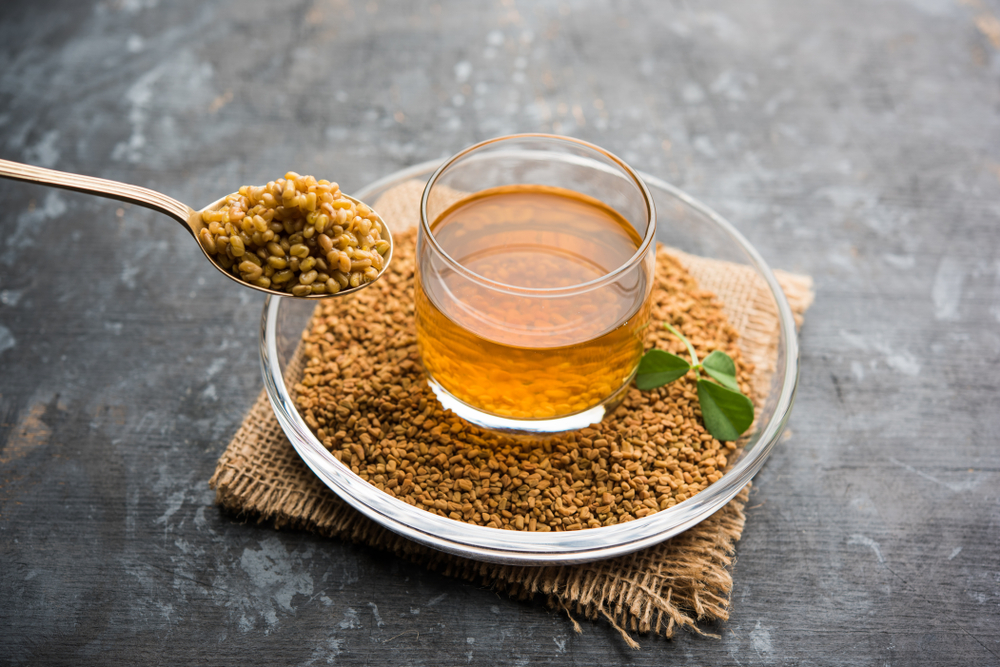
Conclusion:
Fenugreek has been used as an herb and a flavoring agent for a long time. It is generally considered good and safe for your health. Among other fenugreek benefits, it is known to help boost testosterone levels, increase breast milk production for nursing mothers, aid in weight loss, improve diabetes symptoms, promote hair growth, and improve skin health. You can easily add this to your regular diet in various forms, like soaked seeds, sprouted seeds, tea, or even pills and capsules. Do remember that moderation is the key. If you are taking fenugreek supplements, follow the recommended dosage to avoid potential side effects.
Contributor: Mary Sabat, RDN, LD, Ace Certified Trainer - Body Designs Ltd.
Citations:
1 Fenugreek – What you should know
https://www.nccih.nih.gov/health/fenugreek
2 Effectiveness of fenugreek as a galactagogue
3 Spices, fenugreek seed – nutrition facts
https://fdc.nal.usda.gov/fdc-app.html#/food-details/171324/nutrients
4 Fennel and Fenugreek Tea Drinking Suppresses Subjective Short-term Appetite
https://www.ncbi.nlm.nih.gov/pmc/articles/PMC4525133/
5 Fennel and Fenugreek Tea Drinking Suppresses Subjective Short-term Appetite in Overweight Women
https://www.ncbi.nlm.nih.gov/pmc/articles/PMC4525133/
6 Fenugreek: A review on its nutraceutical properties ---
https://www.sciencedirect.com/science/article/pii/S1658077X15301065#b0300
7. Relationship between serum testosterone levels and libido is well established
The Relationship between Libido and Testosterone Levels in Aging Men
https://pubmed.ncbi.nlm.nih.gov/16670164/
8. Physiological aspects of male libido enhanced by standardized Trigonella foenum-graecum extract and mineral formulation
https://pubmed.ncbi.nlm.nih.gov/21312304/
9. Role of Fenugreek in the prevention of type 2 diabetes mellitus in prediabetes
https://www.ncbi.nlm.nih.gov/pmc/articles/PMC4591578/
10. Simple dietary addition of fenugreek seed leads to ---
https://www.ncbi.nlm.nih.gov/pmc/articles/PMC5954247/
11. Fenugreek Leaf Extract and Its Gel Formulation Show Activity Against Malassezia furfur
https://www.ncbi.nlm.nih.gov/pmc/articles/PMC6998042/
12. Alkaloid and flavonoid rich fractions of fenugreek seeds (Trigonella foenum-graecum L.) with antinociceptive and anti-inflammatory effects
https://pubmed.ncbi.nlm.nih.gov/22542922/
13. Anti-inflammatory activity of fenugreek seed
https://www.ncbi.nlm.nih.gov/pmc/articles/PMC4980935/
14. Effects of fenugreek seed on the severity and systemic symptoms of dysmenorrhea
https://pubmed.ncbi.nlm.nih.gov/24695380/
15. Fenugreek – side effects
https://www.nccih.nih.gov/health/fenugreek
16. Toxicological properties of fenugreek
https://pubmed.ncbi.nlm.nih.gov/27498339/
17. Fenugreek - Drug Levels and Effects
https://www.ncbi.nlm.nih.gov/books/NBK501779/
18. An in vitro anticoagulant effect of Fenugreek





 JOIN OUR WHATSAPP CHANNEL
JOIN OUR WHATSAPP CHANNEL







































